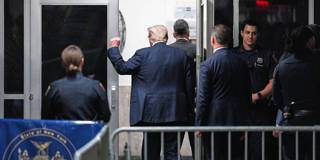
Trump’s Victory Over the Rule of Law
America’s legal order has met its match in President-elect Donald Trump, who has consistently escaped accountability for his crimes and now enjoys near-total impunity. If the rule of law is to survive, it must have a say about what is and is not just, rather than merely recognizing as valid whatever is legislated.
CAMBRIDGE – Kamala Harris was not alone in suffering a decisive loss in the 2024 US presidential election. It was also a defeat in the “battle for the soul” of the rule of law – an institution that has defined American democracy for almost 250 years. Poignantly illustrating that fact was Special Counsel Jack Smith’s filing to drop the Department of Justice’s prosecutions of President-elect Donald Trump.